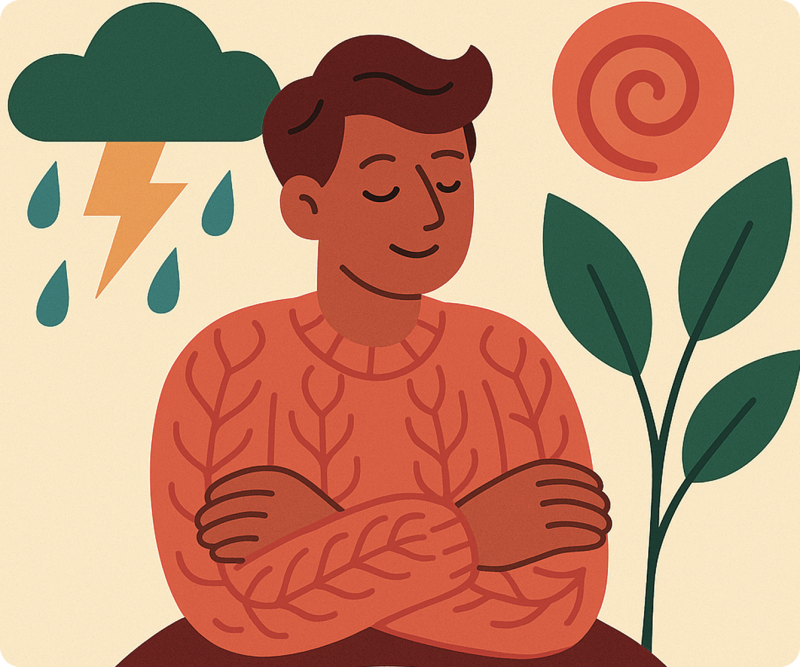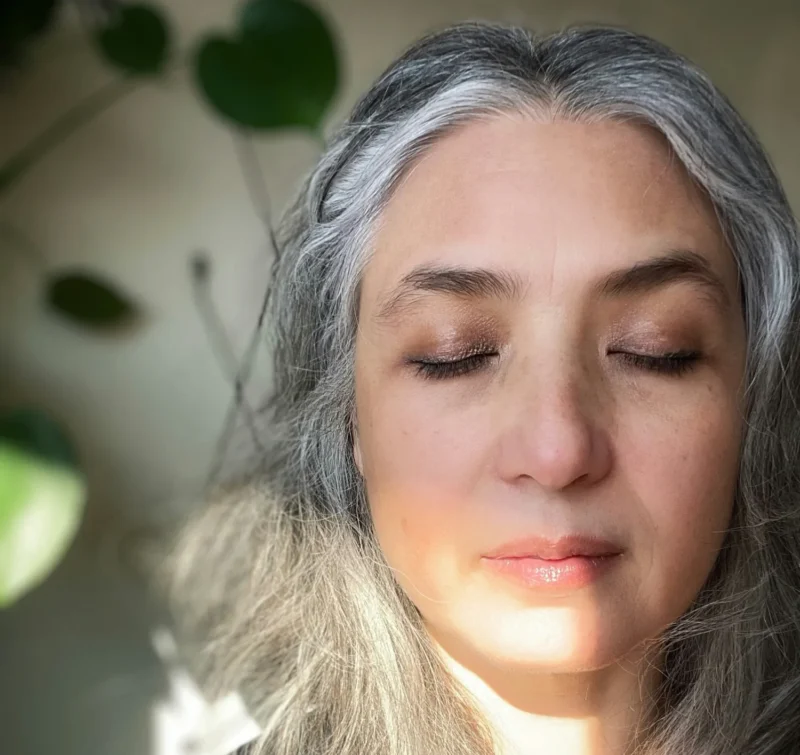
Obsessive Compulsive Disorder (OCD)
Obsessive-Compulsive Disorder (OCD) is a type of anxiety disorder marked by repetitive and distressing intrusive thoughts, images, or urges (obsessions), and ritualistic behaviours or mental acts (compulsions) performed to relieve the resulting anxiety. These compulsive behaviours—such as handwashing, checking, ordering, counting, or silent mental rituals—are often attempts to neutralise or prevent perceived harm, even when the connection between the behaviour and the feared event is irrational.
Understanding OCD
People with OCD often experience an exaggerated sense of responsibility or fear of causing harm, leading them to perform these ‘safety behaviours’ in an effort to prevent bad outcomes or restore a sense of control. While the relief is temporary, it reinforces the cycle of obsessive thinking and compulsive behaviour.
Common intrusive thoughts may include:
- “If I don’t wash my hands properly, something bad will happen.”
- “If I do a perfect job, everything will be okay.”
- “I’ve caused something terrible to happen because I’m contaminated.”
Most people experience fleeting, unwanted thoughts from time to time. The difference in OCD is how much meaning is assigned to these thoughts and the extreme discomfort they cause. The resulting compulsions are not habits or preferences—they’re powerful urges that are very difficult to resist, even when they are known to be irrational.
OCD can feel exhausting, time-consuming, and isolating. You may feel ashamed of your thoughts or behaviours, or frustrated by your inability to control them. It’s important to remember that OCD is a treatable condition, and with the right support, recovery is possible.
Common signs & symptoms
OCD symptoms typically include both obsessions and compulsions. These can vary widely from person to person.
Obsessions may include:
- Fear of contamination (e.g. germs, illness, dirt)
- Fear of causing harm to others or making a catastrophic mistake
- Intrusive sexual, violent, or taboo thoughts
- A need for things to be symmetrical, “just right,” or in perfect order
- Excessive concern with morality, religion, or responsibility
Compulsions may include:
- Excessive washing, cleaning, or grooming
- Repeated checking (locks, appliances, health)
- Counting or repeating actions a certain number of times
- Arranging items until they feel “right”
- Seeking constant reassurance or mentally reviewing past actions
These compulsions are usually performed to relieve anxiety or prevent a feared outcome, but they rarely provide lasting relief. Instead, they reinforce the anxiety and make the obsessions feel more powerful over time.
Types or subcategories
OCD can show up in different forms or “themes,” including:
- Contamination OCD – intense fear of germs, illness, or being unclean
- Checking OCD – compulsive checking to avoid harm (e.g. locking doors, turning off appliances)
- Symmetry and Ordering OCD – arranging items or actions until they feel “just right”
- Intrusive Thoughts OCD – distressing thoughts of violence, sexuality, or blasphemy
- Harm OCD – fear of causing harm to others, even unintentionally
- Moral or Religious OCD (Scrupulosity) – obsessive concern about being immoral or sinful
- Relationship OCD (ROCD) – ongoing doubt or obsession about one’s relationship
It’s common for people to experience more than one subtype, or for the focus of their OCD to shift over time.
What you can do
If you’re living with OCD, there are small steps you can take alongside therapy to support your progress:
- Learn about OCD and how it works—understanding the cycle can reduce its power
- Practise mindfulness or grounding techniques to manage anxiety
- Avoid reassurance-seeking behaviours when possible
- Be compassionate with yourself—resisting compulsions is difficult
- Build routines that support rest, nutrition, and balance
- Connect with others or a therapist who understands OCD
- Try not to avoid situations that trigger obsessions (when safe to face them gradually)
Recovery from OCD is often a gradual process, but change is possible with consistent support and care.
How we can help
At Seed Psychology, we offer compassionate, evidence-based treatment for OCD in a safe, non-judgemental environment. Several of our psychologists are highly experienced in supporting clients through OCD and related anxiety conditions.
We use therapeutic approaches such as:
- Cognitive Behavioural Therapy (CBT) – the gold standard for OCD
- Exposure and Response Prevention (ERP) – a structured technique that helps reduce compulsive behaviours
- Relaxation and anxiety-management strategies – to support emotional regulation
- Collaborative exploration – helping you understand and challenge unhelpful beliefs in a way that feels safe and manageable
Treatment is tailored to your pace and needs. With the right support, many people experience a significant reduction in their symptoms and are able to re-engage more fully with life.
Connect with our team to book an appointment at our Brunswick East clinic or via telehealth across Australia. You don’t have to navigate OCD alone—effective, compassionate support is available.
Through connection,
change is possible
Our compassionate team at Seed Psychology is here to help you regain your wellbeing and navigate life’s challenges with greater confidence and clarity. Connect with us to book an appointment with a psychologist in our Brunswick clinic or via telehealth Australia-wide.
Available resources
Meet our amazing team of therapists
Our diverse team of psychologists offer individual, couples, and online therapy, as well as assessments. Beyond their expertise, they bring humanity and care, providing respectful, affirming support tailored to each person’s unique experience.
Freqeuently asked questions
-
You do not need a referral to see a Psychologist at Seed Psychology. However, if you’d like to claim a Medicare rebate, you will need a Mental Health Care Plan (MHCP) from your GP. With a MHCP, you may be eligible for rebates on up to 10 sessions per calendar year. These sessions can be used at any psychology clinic of your choice. To access Medicare psychology rebates, book an appointment with your GP and ask for a Mental Health Care Plan. Most referrals begin with 6 sessions, with the option to access 4 more after a review. Referrals can also be provided by a psychiatrist or paediatrician.
-
Yes, we offer in person sessions at our Brunswick East practice and secure online appointments. Our online services make it easy to connect with your Psychologist from anywhere, offering flexibility without compromising on care. Whether you attend in person or online, you’ll receive consistent, high-quality support.
-
To book an appointment, simply use our booking form, or call our client care team on 9388 8113.
-
Our goal is to make mental health care approachable, inclusive, and clear—so you always know what to expect.
Individual Therapy Sessions
- Private clients (no referral): $255 – $285
- Clients with a MHCP: $230 – $285
- Medicare rebates: $96.65 – $141.85 per session (depending on the clinician)
- Private clients (no referral): $255 – $285
-
At Seed Psychology, your safety and wellbeing are our highest priorities. While we are here to support you through regular therapy sessions, we are not a crisis service and may not be available outside of scheduled appointments. If you or someone you care about is in immediate danger, experiencing a mental health crisis, or needs urgent support, it’s important to seek help straight away through the appropriate emergency or crisis services. You can find a list of trusted organisations and services here that can provide immediate support when you need it most.








